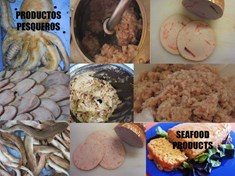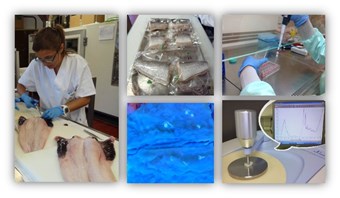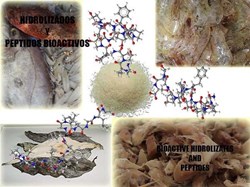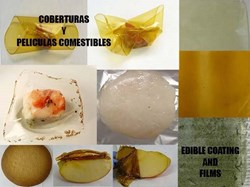ICTAN, IdF | |
ICTAN (Institute of Food Science, Technology and Nutrition was created in June 2010 as Institute of CSIC (Spanish National Research Council) from the former Instituto del Frío and Instituto de Fermentaciones Industriales. ICTAN is the largest institute in Food Science and Technology of CSIC. It has three departments based on horizontal disciplines (Food Quality and Safety, Metabolism and Nutrition, Process design and development) and a fourth named Food Products in which fish and fish products is one of the main research areas. The institute is certified since 2008 under UNE-EN ISO 9001:2015 with scope “Management and execution of research projects and contracts in the Area of Food Science and Technology and Nutrition” (Certificate number ER-0366/2008). The ICTAN´s mission is the generation, dissemination of new fundamental and applied scientific knowledge of quality and its transfer to the productive sector at local, national and European scales, with a commitment to promote excellence for new professionals demanding training, and/or for established scientists requiring to broaden or update their knowledge. The institute has several transverse Units, which give service to all groups of ICTAN as well as to other research institutes or industry. Among them the Analytical, Microbiological and Instrumental Service Unit provides all the necessary equipment and laboratories such as general chromatography, mass spectrometry, spectroscopy, characterization and physics properties, general instrumentation, microbiology and cell culture laboratories. The institute also has the Service Unit for Sensory Analysis and the Service Unit of Human Nutrition. | The groups working on different aspects of Seafood are the main contributors to the membership of WEFTA and had been engaged since the Instituto del Frío joined WEFTA back in the early eighties. They cover a broad spectrum of activities, some of them related with the development of products based in the technology of surimi and protein gelation with emphasis in functional foods, including the study of their bioaccessibility, bioavailability and immunological potential. They have a long experience in the upgrading of rest raw materials, underutilized and discarded marine products and industrial residues. Other activities include the development and application of edible, active and biodegradable films, micro and nanoencapsulation, the application of high hydrostatic pressure, and the study and development of melanosis inhibitors for crustaceans. The research lines related to the quality and safety of seafood products include the study of the black spot in salmon, the implementation of strategies to reduce and control spoilage and pathogenic bacteria, as well as to reduce the pathogenic potential of anisakids or the development of spectroscopic methods to authenticate the processing in several scenarios. |
⬅︎ Back to list of Permanent National representative member institutes | |
Contact | WEFTA on social media | Sitemap
WEFTA
WORKING GROUP
Working groups meetings
MEMBERS | MEETINGS
WEFTA AWARD
NEWS
AGENDA
SEARCH
|






